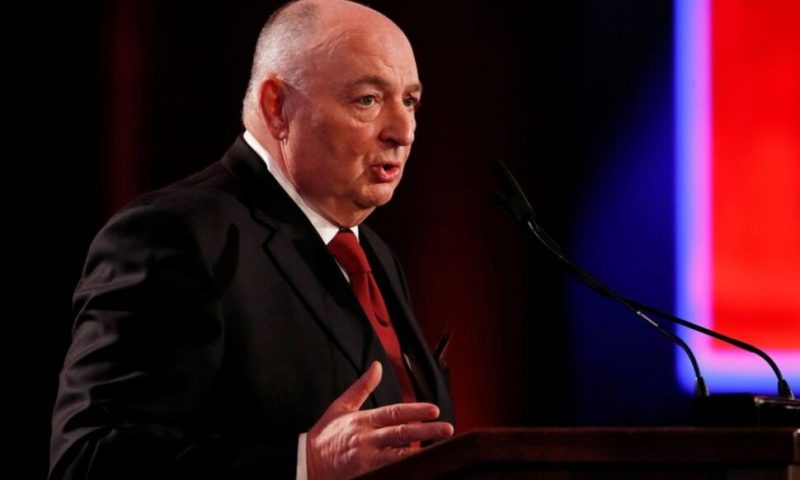BRUSSELS – Hungary and Austria questioned an EU decision to blacklist two Russian oligarchs but eventually accepted the move after pressure from other governments, European Union diplomats and officials said.
The EU adopted a new package of sanctions against Russia last Friday over its invasion of Ukraine, including the blacklisting of oligarchs close to the Kremlin, among them Moshe Kantor and German Gref.
Hungary and Austria enjoyed relatively cordial relations with Russia before the invasion, and their concerns about blacklisting Kantor and Gref underlines the difficulty the EU faces in presenting a united front against Russia.
The envoys of Estonia and Lithuania successfully urged their partners not to remove the two men from the list, the diplomats said.
Kantor, a large shareholder in Russian fertilizers company Akron, is also a philanthropist who had headed the European Jewish Congress (EJC).
He was sanctioned for having close ties to President Vladimir Putin, the EU sanctions document said. Kantor, a citizen of both Britain and Russia, has already been sanctioned by London and the EJC said on Friday he would stand down as its president.
Hungary and Austria had both questioned the move against Kantor at a meeting of EU diplomats last Wednesday, officials who attended the meeting said.
The Hungarian envoy had expressed surprise at the blacklisting of somebody he described as a highly decorated man, they said. Kantor has received awards from several EU states, including Austria, Italy and France.
Spokespersons for Hungary’s government and its diplomatic mission in Brussels had no immediate comment.
The Austrian envoy at Wednesday’s meeting had asked for more information about why Kantor had been listed, sources said.
“Austria has never objected to or blocked any listings and will of course not do so in the future,” a spokeswoman for Austrian Foreign Minister Alexander Schallenberg said.
Blacklisted oligarchs face asset freezes and travel bans in the EU, but not all EU countries have reported enforcement measures.
Out of about 30 billion euros frozen to oligarchs since the start of the Ukraine war, Austria has reported a few hundreds of millions of euros blocked in bank accounts linked to blacklisted individuals. Hungary has so far not publicly reported any measures.
At the meeting, Hungary also questioned the listing of Gref, head of Sberbank, Russia’s largest lender.
Sberbank plays a crucial role in energy transactions and has so far been exempted from EU sanctions because of the EU’s reliance on Russian gas and oil.

